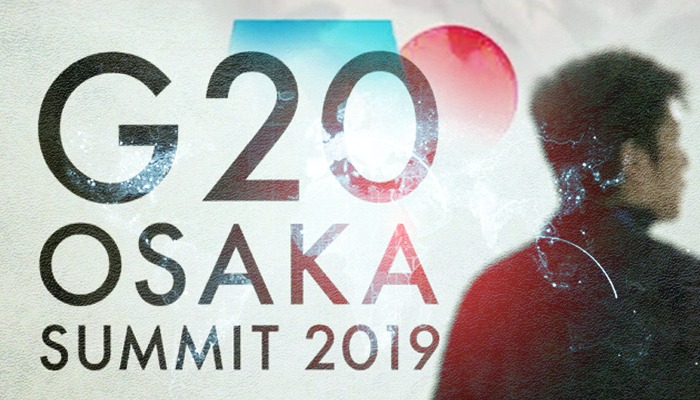A large two-day summit of the world’s leading economies was held in Osaka, Japan. Following the meeting, the participants crafted a joint statement on security, ecology, migration, economics, etc.
International politics
The leaders touched on the topic of Iran, expressing concern over the ongoing and escalating conflict.
In recent weeks the conflict between the United States and Iran has developed significantly, particularly after the downing of a US drone, and the explosions aboard two tankers which the US blamed on Iran without evidence or investigation.
The parties agreed to jointly reduce regional tensions and cooperation. In addition, after the US’ withdrawal from the 2015 Joint Comprehensive Plan of Action (JCPoA) on the Iranian nuclear program, Tehran called other countries to back the deal, including China, Russia, Germany, France, and the UK.
During the summit, Trump and Turkish President Recep Tayyip Erdogan discussed the Russian anti-aircraft S-400 missile system sale. Trump believes that the decision to supply the S-400s was “dishonest”, but at the same time accused Barack Obama of creating the situation. Trump noted that Ankara made the decision to buy the S-400 since Washington had long refused to sell its Patriot systems.
In turn, Erdogan stressed that Turkey will not refuse to take the S-400, since the contract is already signed and paid for. At the same time, he is still waiting for a supply of F-35 fighter jets from the US, and does not see a contradiction in having them and the S-400s as Washington has insisted.
Economy: growth and reform of the WTO
Despite the projected acceleration of global economic growth in 2019 and 2020, the pace of development remains slow, negotiators noted.
The leaders expressed support for necessary reforms of the World Trade Organization to improve its functions.
According to them, this is necessary in connection with the functioning of the dispute settlement system in accordance with the rules agreed between WTO members. In addition, during the negotiations, they noted the complementary role of bilateral and regional free trade agreements that are consistent with the WTO.
Trade war
One of the main topics at the summit was the trade war between the United States and China. Previously, the United States imposed import duties on many Chinese goods, and then expanded the list. China, in turn, responded to the actions of the American administration mirror – introducing fees for goods from the US.
Xi Jinping urged to avoid conflicts and confrontations.
Trump stressed that the United States in the near future will not introduce trade duties against China.
Digital economy
According to participants, the G20 countries agreed on the Osaka Truck initiative to develop digital commerce in the WTO. A meeting on this issue is scheduled for July 2019.
As UWI wrote earlier, G20 ministers have already agreed on measures against monopolies held by giant corporations such as Google, Amazon, Facebook and Apple. It was decided to expand the tax system to include these large corporations wherever they do business. The conversation concerned, among other things, the location of companies by country, revenues, etc.
Internet security
G-20 countries agreed on the need to toughen counter-terrorism measures and the spread of online violence.
The initiative was launched by Australia, which seeks the reaction of the world community to the attacks on the mosques in Christchurch in March.
It was decided that online platforms have to accelerate the development of stricter measures to counter the spread of information related to terrorism and violence.
Environmental and Energy Issues
The parties also discussed the environmental agenda. As shown by the results of elections in Europe, as well as the recent Democratic Party debates in the US, ecology is becoming a key issue at the international level.
This time, the G20 representatives agreed to strive for the complete cessation of emissions of plastic waste into the waters of the oceans by 2050.
Among the discussions on environmental issues was France’s position – the country refused to sign the final document before the Paris Climate Agreement was mentioned.
The importance of global energy security was discussed as one of the fundamental principles for transforming the world energy system.
Migration issues
The G20 leaders paid considerable attention to the problem of migration – relevant not only for Europe, but also the United States and other countries around the world.
They stressed the need for joint action to resolve the problem of mass migration.
Gender Issues
The parties discussed issues of women’s employment, education and business. They stressed that their respective countries would take measures to ensure women’s equality and reduce the gap in the employment rate between men and women by 25% by 2025.
Tourism
Discussions also touched upon tourism, which, according to the summit participants, remains one of the most important factors of global economic growth.

















Leave a Reply